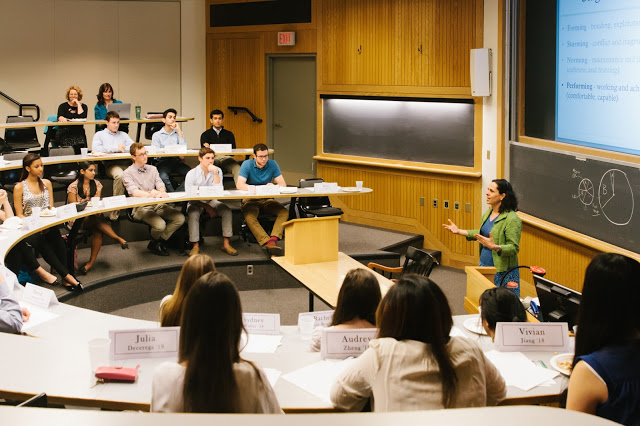- Public Policy
- Leadership
- Funding
- News & Events
- About the Center
Back to Top Nav
Back to Top Nav
Back to Top Nav
Back to Top Nav
For the third session of Civic Skills Training, the First-Year Fellows learned about teamwork between roommates. The fellows sat with other flatmates they would be living with in WISH Woodley Park, Washington DC to learn about what would make a great team and the situations in which the group dynamic may be affected.
Herman discussed with the fellows which roles may help a group task and may hinder a group task: the fellows, from their past experiences in group activities, gave numerous examples that had both helped and hindered a group such as silence breakers, complainers, supporters, cooperators and latecomers. Herman also guided the fellows through a group activity, following up with a discussion of how the fellows carried out the group activity. After reading a story, Herman asked the groups to rank the characters in the story from least annoying to most annoying. Groups came up with diverse solutions on how to rank the characters: some groups voted on the rankings, and others reasoned with others to come up with a solution to which everyone agreed. Following the discussion, Herman explained how the different ways of coming to a decision had different pros and cons. Authority rule would be quick but problems would be withstanding, as the majority did not agree to the decision and rule by majority may have some people who disagree.
 |
| Photo by Hung Nguyen '18. |
In the next part of the session, the fellows were invited to share their experiences on why groups fail. Fellows listed problems such as lack of clarity of issue, the inability to focus on the problem, failure to follow a good process, and domination by a few individuals as some of the examples of how their past group activities had failed. Discussing how to remedy the issue, fellows said that better communication and listening to others' concerns would have helped the group.
For the last part of the sessions, fellows discussed with their flatmates to settle on a roommate agreement. They tested out various scenarios that may cause discomfort for others, such as having a visitor overnight and cooking in the kitchen together. Some groups decided that one of them would cook for the rest of the group once a week, and one group said that they would have weekly meetings to meet with others and discuss issues that may have come up during the week.
"You are all nice people, you are all good people, you are all smart people," Herman said when wrapping up the session. She explained groups do not fail because the members are unintelligent or inconsiderate -- often bad communication, fragmentation, money problems and free rider problems hinder a group from reaching its full potential. The fellows will continue to work on their roommate agreement before the start of their internship, to make the communal living experience a positive one.
-Written by Jinmyoung Lee '16, Rockefeller Center Student Program Assistant